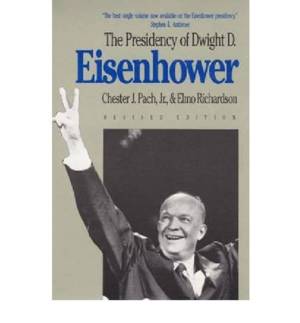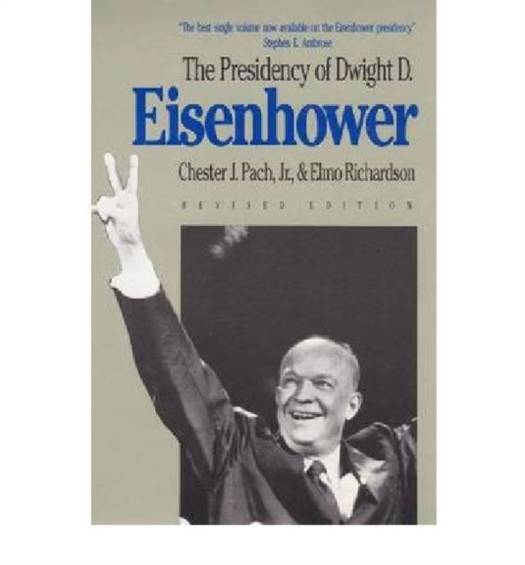
- Afhalen na 1 uur in een winkel met voorraad
- Gratis thuislevering in België vanaf € 30
- Ruim aanbod met 7 miljoen producten
- Afhalen na 1 uur in een winkel met voorraad
- Gratis thuislevering in België vanaf € 30
- Ruim aanbod met 7 miljoen producten
Zoeken
€ 59,45
+ 118 punten
Uitvoering
Omschrijving
The focus of this revision is not how Eisenhower made policy, but how his decisions shaped American life in the 1950s and beyond. In this first post-revisionist study of the Eisenhower presidency, historian Chester Pach reaches beyond the issues the revisionists raised: Was Eisenhower in command of his own administration? Did he play a significant role in shaping foreign and domistic policy? Drawing on the wide range of works published within the past decade, Pach expands Elmo Richardson's 1979 study by nearly one third. In addition to new material on national security policy, Pach deepens the analysis of Eisenhower's leadership and managerial style and explores the significance of the decisions Eisenhower made on a whole range of critical issues, from civil rights to atomic testing. By emphasizing the fundamental failings of Eisenhower's presidency, Pach swims against the stream of recent scholarship. He concludes, for example, that Eisenhower's commitment to support South Vietnam in 1954, with its attendant responsibilities and consequences, was far more important--and ultimately disastrous--than his refusal to intervene with military force in support of the French in 1954. Eisenhower's unleashing of the CIA (in Iran, Guatemala, and elsewhere) also draws sharp criticism, as does his timid and ineffective handling of McCarthy.
Specificaties
Betrokkenen
- Auteur(s):
- Uitgeverij:
Inhoud
- Aantal bladzijden:
- 304
- Taal:
- Engels
- Reeks:
Eigenschappen
- Productcode (EAN):
- 9780700604371
- Verschijningsdatum:
- 22/04/1991
- Uitvoering:
- Paperback
- Formaat:
- Trade paperback (VS)
- Afmetingen:
- 151 mm x 230 mm
- Gewicht:
- 453 g

Alleen bij Standaard Boekhandel
+ 118 punten op je klantenkaart van Standaard Boekhandel
Beoordelingen
We publiceren alleen reviews die voldoen aan de voorwaarden voor reviews. Bekijk onze voorwaarden voor reviews.







